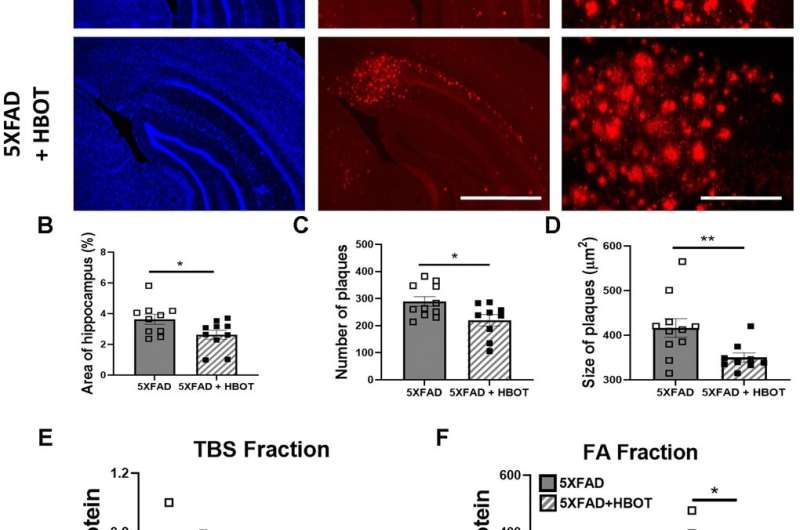New non-drug treatment holds promise for preventative therapies for Alzheimer's

Approximately 50 million people worldwide live with Alzheimer's or other related forms of dementia. Alzheimer's disease leads to memory loss and impairment in cognitive function, and is the most common cause of dementia among older adults. While certain treatments can help reduce symptoms and sometimes reduce disease progression, there is currently no way to prevent or cure Alzheimer's.
26 sep 2021--Amid that backdrop, researchers from Tel Aviv University have developed a process for reversing the precursors of the disease, providing a promising foundation for new preventative therapies. This marks the first time that a non-drug therapy has proven effective in preventing the core biological processes that lead to the development of Alzheimer's, providing hope that we will now be able to fight one of the greatest challenges to the Western world.
Targeting the root of Alzheimer's
Using hyperbaric oxygen therapy (HBOT), in which subjects breathe 100% oxygen in a special chamber of high atmospheric pressure, the researchers were able to reverse brain damages associated with the biological hallmarks of Alzheimer's.
"By treating the root problem that causes cognitive deterioration with age, we are in fact mapping out the way to prevention," says co-lead researcher Prof. Shai Efrati.
Often used to treat carbon monoxide poisoning and infections that starve tissues of oxygen, hyperbaric therapy, when applied in a specific way, has previously been found capable of repairing damaged brain tissue and renewing growth of blood vessels and nerve cells in the brain. Therefore, the researchers tested its potential for Alzheimer's.
"After a series of hyperbaric treatments, elderly patients who were already suffering from memory loss showed an improvement of blood flow to the brain as well as a real improvement in cognitive performance," said co-lead investigator Prof. Uri Ashery.
The new approach devised by the researchers unequivocally improved characteristics commonly associated with Alzheimer's disease. Specifically, the hyperbaric treatment resulted in:
- Improved memory in 16.5% of patients on average
- Increased blood flow in 16%-23% of cases
- Improved attention and concentration in 6% of patients
- Improved information processing speed in 10.3% of all cases
A future without Alzheimer's?
"Our findings provide hope that we will now be able to fight one of the greatest challenges to the Western world. According to our findings, hyperbaric therapy given at a young age is likely to prevent this severe disease entirely," explains TAU team member Dr. Ronit Shapira.
The approach was first tested in laboratory settings followed by testing in patients over the age of 65 in stages of deteriorating mental function that often precede Alzheimer's and dementia. The therapy included a series of 60 treatments in hyperbaric chambers over a period of 90 days.
The study is part of a comprehensive research program focused on reversing processes of aging and its accompanying ailments. The researchers note that the findings are an encouraging step toward new approaches to preventing Alzheimer's by addressing not only the symptoms or targeting biomarkers, but the core pathology and biology responsible for the disease's development.
The findings were published in the journal Aging.
No comments:
Post a Comment